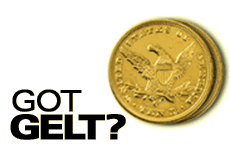 Identifying as a Jew
Identifying as a Jew


5 min read
What's the deeper meaning of money and what does it have to do with Chanukah?
The Code of Jewish Law states: “It is forbidden to derive any benefit from the lights of the Chanukah menorah... even to use the light to count your money.”
When Jewish law wants to illustrate the prohibition against deriving benefit from the menorah, the example used is "don’t count your money." It could have said don't write a letter by the light of the menorah, or don't let your children do their homework by the light of the menorah. But of all things, it says, don't count your money by the light of the menorah.
And on top of all this, Chanukah is the only holiday that has a custom centered on money, the giving of Chanukah gelt.
What’s the deeper meaning of money? And what is the relationship between Chanukah and money?
The History Of Money
It is impossible for us to imagine a world without money, but once upon a time that's the way it was. In a moneyless world, how would you buy a shovel?
Simple. You’d take your extra hammer, and find someone with an extra shovel who just happened to need a hammer. Swap your hammer for his shovel – and presto! Everyone’s happy.
A tedious, inefficient and bothersome way to execute transactions? Now you know why money was invented…
There was a time when a U.S. dollar was backed by a dollar's worth of gold. But that is no longer the case. Today our money is a symbolic representation of value. The difference between money and actual goods is that one has intrinsic value, while the other has representative value. A lawnmower is valuable because it cuts grass. But a twenty dollar bill, a personal check or a plastic credit card can't be used for too much. But you can transform it into almost anything you desire…
One person looks at a hundred dollar bill and sees a CD player. Another sees a watch, and yet another sees a bicycle for his niece's birthday. Money, in and of itself, has virtually no value, but its potential is almost limitless.
Money represents potential.
Jacob and the Jars
In the formative years of Jewish history, Jacob had a bully for a brother named Esau. Eventually the situation became so bad at home that Jacob had to run away from his brother, who wanted to kill him. Years later, Esau and his thugs finally caught up with Jacob. During the night before their fateful reunion, Jacob quietly moved his entire family across the river near where they had camped. Then, Jacob went back to the other side of the river.
The Midrash says two amazing things:
1) Jacob went back to the other side because he forgot some small jars. This teaches us that the righteous care more about their money than their own lives.
2) "Therefore," said God, "because you took the risk of going back for a few jars, I will repay your children with a small jar that will be found by the Maccabees."
Think about it. Jacob goes back to retrieve some small jars and somehow that act is so significant that it enables the Maccabees, over 1,000 years later, to find the one remaining jar of oil that would be the source of the Chanukah miracle. Additionally, we learn from this episode how important money is to righteous people.
Jacob, the father of the 12 tribes, understood the power of potential.
Chanukah Money
On the surface, it was preposterous for the Jews to resist the Greeks. Hellenism was the wave of the future and militarily no one could stand in the Greeks' path, certainly not a band of renegade Jews.
But the Jewish people knew that they were an eternal people. A people whose message of values was destined to last forever and have a world-shaping impact. A tiny and ill-equipped people was prepared to take on the superpower of its day, all because they believed in the potential of Jewish destiny. They believed that no matter how dire things looked, there exists within the Jewish soul, the ability to vanquish the mightiest of foes and fulfill their own mission of being "A light unto the nations."
“The Egyptian, the Babylonian and the Persian rose, filled the planet with sound and splendor, then faded to dream-stuff and passed away. The Greek and the Roman followed and made a vast noise, and they are gone; other peoples have sprung up and held their torch high for a time, but it burned out, and they sit in twilight now, or have vanished. The Jew saw them all, beat them all, and is now what he always was; exhibiting no decadence, no infirmities of age, no weakening of his parts, no slowing of his energies, no dulling of his alert and aggressive mind. All things are mortal but the Jew; all other forces pass, but he remains.” - Mark Twain
When we light our menorahs, we must look closely at those tiny flames and contemplate the world of potential. Where others see darkness, we are called to see light. We need to look at our children, look beyond the problems and the quarrels, and see potential. We need to look at one another, beyond the faults and the foibles, and see potential.
We need to look at life, beyond all the pain and struggles, and see potential. We need to look at our people, beyond the divisions and the hatred, and see potential. In everything we encounter, we need to look beneath the surface, to discover the soul, and to realize our ultimate potential.
That’s Chanukah gelt.
Adapted from "Chanukah - Eight Nights of Light, Eight Gifts for the Soul," by Rabbi Shimon Apisdorf
